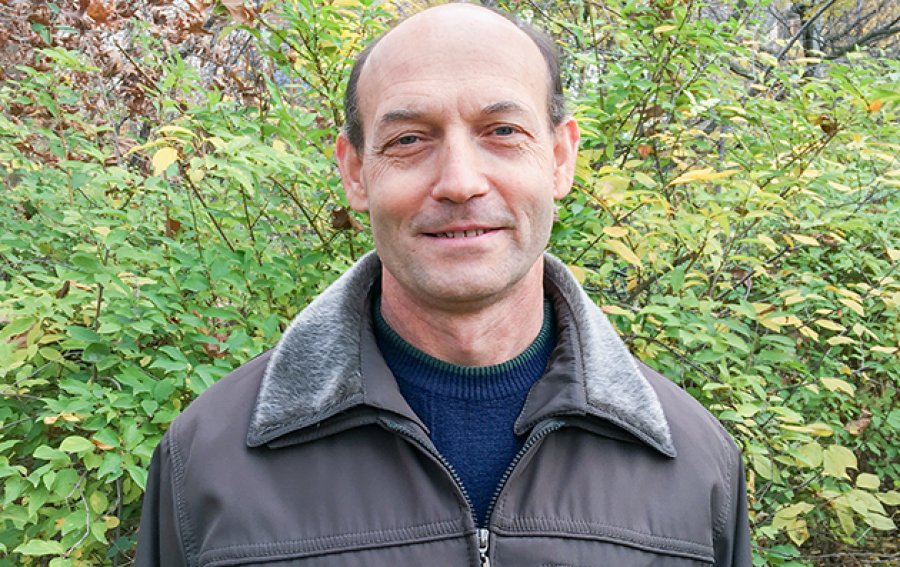
A court in Russia has ordered that Viktor Stashevsky, a Ukrainian Jehovah’s Witness from occupied Sevastopol who is serving a six-and-a-half-year sentence for practising his faith, spend the next three years in a prison. This transfer from a medium security prison colony to the harshest of Russian penal institutions was demanded by the colony administration, purportedly because of Stashevsky’s ‘infringements of the rules’. The Jehovah’s Witness Russian site says that the alleged infringements were fictitious, as, indeed, they very often are. If the 2 May ruling from the Apsheronsk district court (Krasnodar krai) is upheld, this will be the first time since Russia began its religious persecution of believers from the Russian Federation and occupied Ukraine that the scale of repression has been thus intensified. It is unclear what the reason is, however very many Ukrainian political prisoners have faced new charges or other forms of harassment in Russian penal institutions since Russia began its full-scale invasion of Ukraine.
The conditions in any Russian penal institution are appalling, and Stashevsky (b. 1966) is not a young man. A prison is, however, significantly worse, with prisoners held in cells, prevented from working or studying, and allowed very restricted movement (‘walks’ under convoy, in a small courtyard, surrounded by barbed wire or grating). Although, in theory, prisons are intended for those convicted of grave crimes, Russia is regularly including up to five years in prison as part of huge sentences passed against Crimean Tatar and other Ukrainian political prisoners. Although the number of Ukrainian Jehovah’s Witnesses persecuted for their faith and sentenced to long terms of imprisonment, all were in medium security prison colonies.
Viktor Stashevsky is married, with two daughters, and was also caring for his elderly mother. He was arrested after armed searches were carried out during the night from 4 – 5 June 2019 in at least nine homes in Sevastopol. No pretence was made of any legitimate grounds for such searches, with only telephones and computer technology removed. Stashevsky was one of the first Ukrainian believers to face persecution, with this the likely reason why he was not held in detention until the first-level ‘court’ in occupied Crimea announced the sentence.
Russian state-controlled media claimed that the FSB had detained the “leader of an extremist cell” who had “held meetings, carried out propaganda of the ideas of this religious sect and also attracted new members to it”. Over 70 copies of what they called “extremist literature” were removed, as well as reports about donations; brochures; and other material. All such reports use language deliberately aimed at presenting devout believers as people involved in something illicit and fail to mention, for example, that it is Russia’s persecution that prompted the instructions found on talking to Russian enforcement officers.
The ‘trial’ took place at the occupation ‘Gagarin district court’ in occupied Sevastopol with Stashevsky, then 55, sentenced by ‘judge’ Pavel Kryllo on 29 March 2021 to six and a half years’ imprisonment. At the time, this was the harshest of three sentences passed against Ukrainian believers, with the same ‘judge’ previously implicated in the politically motivated persecution of Ihor Movenko.
Stashevsky was charged with having ‘organized the activities of a religious organization whose dissolution has been ordered due to extremist activities’, under Article 282.2 § 1 of Russia’s criminal code. The prosecutor had demanded a seven-year sentence, with Kryllo reducing this by a mere six months, while adding a seven-year restriction on Stashevsky’s right to carry out public activities. Although the verdict was still subject to appeal, Stashevsky was taken into custody in the ‘courtroom’. The appeal was ‘heard’ and, predictably, rejected on 10 August 2021 by ‘judge’ Vladimir Avkhimov from the occupation ‘Sevastopol municipal court.
During his final address to the ‘court’ on 23 March, Stashevsky said: “If I cease to be a Jehovah’s Witness, there won’t be any complaints against me, and the charges will be withdrawn. I do not, however, plan to renounce my faith in God. I have been and remain a Jehovah’s Witness”.



